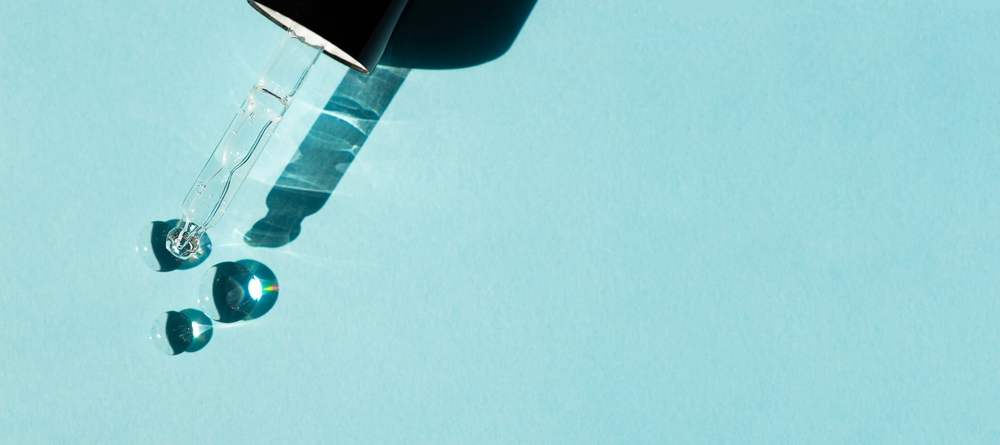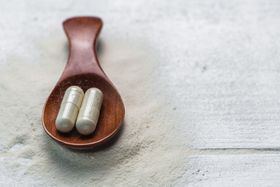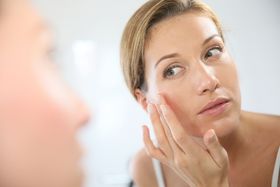Retinol vs. Collagen: Which Should You Take?
Published May 25, 2022.

You can hardly walk past a beauty aisle without seeing the words “collagen” and "retinol." Almost all beauty creams these days contain one or both of them and promise skin like never before.
What are they? What is the difference between collagen and retinol? How do they work on your body? Let's find out.
What Is Retinol?
Retinol is a type of vitamin A. Usually, vitamin A is naturally secreted by the body. But with age, the production starts to decline. Therefore, babies have smooth, soft skin, but older people do not.
It is usually present in almost all skincare products that promise to slow down aging. For some time now, many brands of face cream have touted retinol as a "miracle" skincare ingredient.
What Is Collagen?
On the other hand, collagen is a structural protein that constitutes up to one-third of all protein in the body (1). Collagen makes up the body’s connective tissue. It is in bones, ligaments, tendons, cartilage, arteries, bone marrow, liver, intestines, hair, skin, and nails. A collagen deficiency, therefore, poses many risks for these areas of the body.
This protein is made by the body. At around 20 years of age, your body makes the highest amount of collagen. After this, you lose 1% of collagen per year. When you have a considerable amount of collagen reduction, especially in the skin, it looks less elastic and thinner. Consequently, you get more wrinkles (2).
Using collagen topically can help regenerate the fibroblasts (the cells in connective tissue). When applied to the skin as hydrolyzed peptides, they break down into amino acids, which are then used by the fibroblasts to make collagen (3).
It can also be taken orally as a collagen powder supplement which comes in the form of bovine collagen, marine collagen, and collagen from other animal sources.
Benefits of Retinol
As you get older, your body makes less vitamin A and, therefore, retinol. Dryness, dullness, and wrinkles—all sorts of problems start to occur with age.
Skincare products containing retinol allow this vitamin to sink deep into the skin. It boosts cell turnover, increases collagen production, and reduces wrinkles and fine lines. This isn’t all. It also fades hyperpigmentation, fights acne-causing bacteria, and improves the overall elasticity and texture of the skin (4), (5).
When it's time to select the right type of product based on your skin type, think about the core issue, that is, the concerns you want to address first.
- If you have oily skin, go for a serum-based retinol product that is non-comedogenic. This will make sure that your skin pores do not get clogged.
- If you have combination skin, go for a skin cream/serum-based retinol.
- If your skin is dry, opt for a cream-based retinol product. It should also have glycerin, hyaluronic acid, and allantoin, as retinol can seriously dry out your skin.
Retinol can also be used topically in eye cream to help tighten the skin under the eyes. It improves the skin barrier function and increases the skin's collagen content.
Benefits of Collagen
Collagen has far more benefits that involve the entire body, including the skin. Collagen supplementation:
- Slows the skin aging process It hydrates your skin, reduces wrinkles, and increases elasticity, resulting in a soft, supple, younger-looking skin (6).
- Promotes better sleep The glycine present in collagen is a neurotransmitter that increases your sleep efficiency, improves sleep quality, and reduces insomnia symptoms (7).
- Reduces joint pain Collagen stimulates cartilage growth that acts as a cushion between the bones in the joint. It reduces inflammation and, eventually, the pain (8).
- Improves liver health Collagen supports liver function by protecting the liver cells from toxins. It also plays a protective role on the liver (9).
- Helps regulate hormonal balance Collagen has estrogen-like bone protective effects. That is how it helps to reduce menopausal complications.
- Aids the healing process Collagen helps to shorten the healing time of wounds. It can stop bleeding, recruit new cells, and stimulate new blood cell formation.
- Improves brain health Collagen is a mood enhancer. It also has protective functions for the brain cell.
Should You Use Retinol or Collagen?
When it comes to the skin, retinol takes the lead. This is because retinol penetrates deep down into your skin compared to collagen. While retinol penetrates all layers of the skin, collagen penetrates only the upper two layers.
While collagen gives you flawless skin, retinol gives a smoother skin and lightens skin tone. With regard to skin, collagen effects are short-term, while retinol has a more long-term result on the skin.
However, the benefits of collagen far exceed those of retinol for other parts of the body. It alleviates your joint and muscle pain, improves muscle mass, increases bone density, helps heal you better, reduces the appearance of scars, and much more. As a supplement, you can either take collagen powder or pills. In powder form, it can be blended in shakes or smoothies. But if you prefer the convenience of taking it in pill form, Approved Science® Collagen Pills are among the best on the market.







